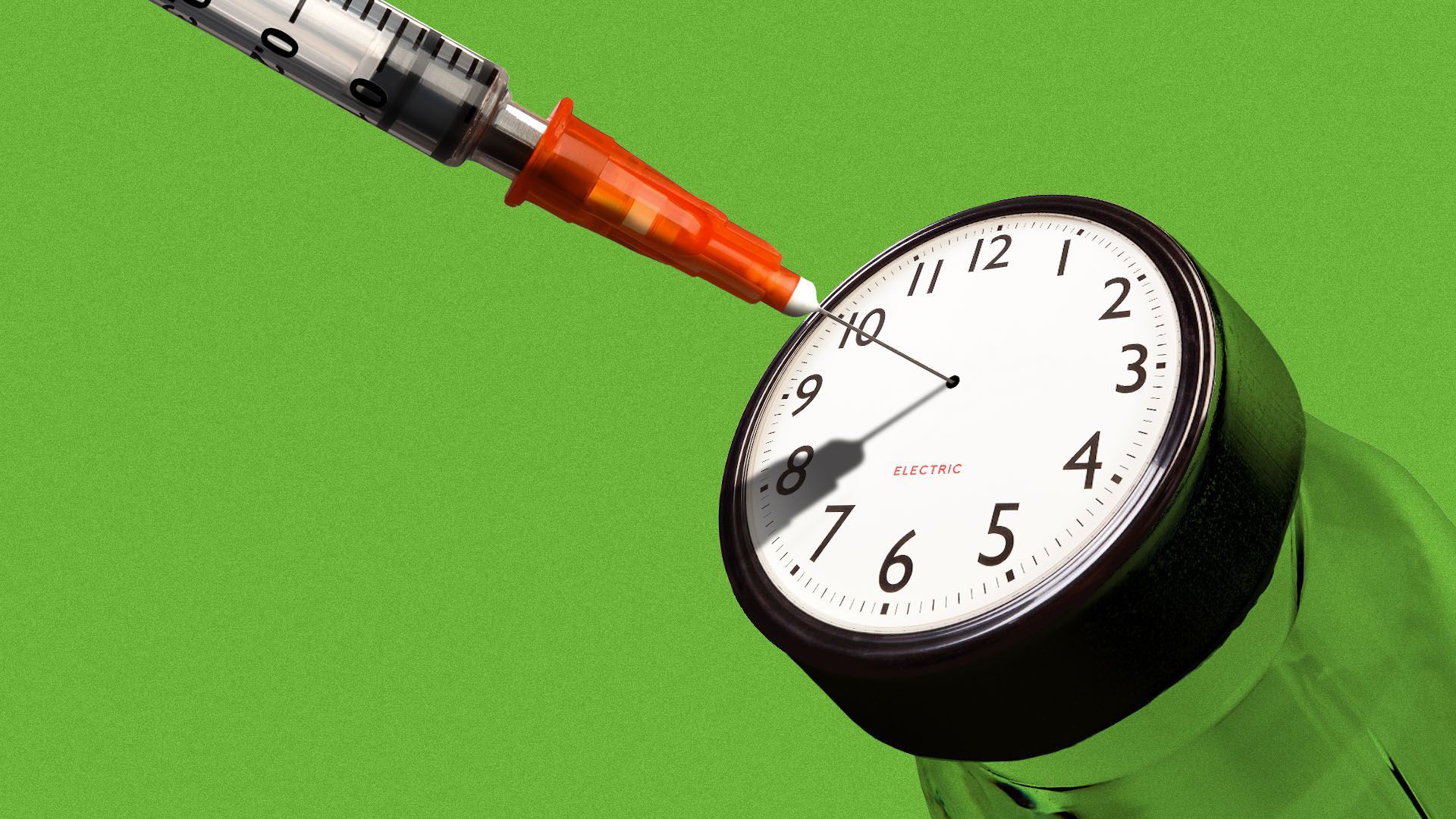The debate begins over the timeline for COVID vaccine boosters
Add Axios as your preferred source to
see more of our stories on Google.

Illustration: Sarah Grillo/Axios
Conflicting statements from Pfizer and the Biden administration were just the beginning of what will likely be a contentious debate over if and when vaccinated Americans need another shot to protect them against the coronavirus.
Why it matters: Making decisions based on emerging science is difficult on a good day. But until global supply outpaces global demand for the vaccine, how to allocate doses will remain a life-or-death decision.
Driving the news: Biden administration officials met with Pfizer yesterday afternoon to discuss whether new data suggests that some Americans may soon need a third shot.
- Sources say officials agreed that they need to continue looking at the data.
- “For those who are at risk, there may be a need for boosts…the real risk is, right now there are people who are not vaccinated," a person familiar with the discussion in that meeting said. “No one walked out of there and said boosters are needed imminently.”
- "We appreciate the information they shared, and officials continue to engage in a science-based rigorous process to consider whether, when, or for whom a booster might be necessary," an HHS official said in a statement to reporters.
Between the lines: Not only is the science unclear, but there would also likely be a global uproar if Americans began receiving a third shot before most of the rest of the world received any.
- Tedros Adhanom Ghebreyesus, director-general of the World Health Organization, said yesterday that Pfizer and other vaccine makers should focus on increasing global access to first doses, not boosters, STAT reports.
- On the other hand, some Americans — especially older ones or those with health conditions — could become increasingly nervous about the status of their protection, especially after reading warnings like Pfizer's.
State of play: Recent studies have shown that the existing vaccines work against the Delta variant, but may be less effective.
- A study out of Israel, released by the government, found that the Pfizer vaccine is only 64% effective against Delta infections, although it remained more than 90% effective against severe disease.
- It was this study that led Pfizer to announce it would seek authorization for a third shot, former FDA Commissioner and Pfizer board member Scott Gottlieb said this weekend.
- But other studies have shown higher efficacy against Delta, particularly against symptomatic infections — just slightly less than against the original version of the virus.
What they're saying: Gottlieb said that people vaccinated early on in the U.S. vaccination effort — who tend to be older — would be the ones to need a boost soon, not those vaccinated more recently.
What we're watching: Politics, both domestic and international, could end up being just as prominent within the booster conversation as the science.
